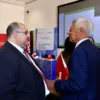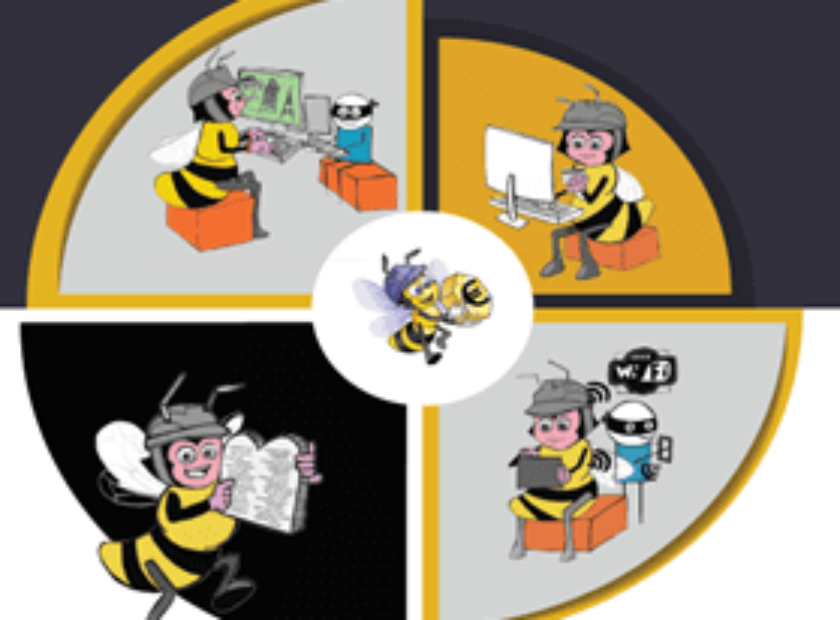
A Visit of Value: Ukrainian Delegation in Malta as Part of the TIPS4EU Project
In recent weeks, Malta had the honour of welcoming a delegation of Ukrainian representatives
Vice mayors, youth workers, and project managers working in local government formed part of the visit. The programme, organised under the TIPS4EU project, lasted around fifteen days and was filled with networking meetings, institutional visits, and valuable exchanges.
The true significance of this initiative lay not only in the professional content of the meetings but also in the powerful message of solidarity and support that the Maltese people, through the Local Councils’ Association (LCA), wished to send to the people of Ukraine during such a difficult and challenging time.
An Intensive and Diverse Programme
The programme was carefully designed to expose the Ukrainian delegation to various institutions and organisations that work closely with local councils and communities in Malta.
Their journey began in Gozo, where they were welcomed by the Gozo Regional Council and the Gozo Regional Development Authority (GRDA). A notable highlight was their meeting with President Emeritus Marie Louise Coleiro Preca, who introduced them to the work of the Foundation for the Wellbeing of Society and its various projects. Discussions also covered the role of children’s councils and their importance in promoting a participatory society.
The delegation also visited the reverse osmosis plant in Qala, which offered a practical demonstration of how Malta manages its limited water resources—an issue of vital importance for Ukraine’s own reconstruction and future sustainability.
Back in Malta, the programme continued with sessions at the Mediterranean Conference Centre (MCC), where the delegation also had the chance to attend the All Digital Summit, which coincidentally took place during the same period and brought together more than 300 European delegates. This overlap enriched the experience further, giving the Ukrainian visitors a unique opportunity to engage with peers from across the continent.
Throughout the visit, the delegation held meetings with a wide range of ministries, departments, and agencies, including the Ministry for Home Affairs, the Ministry for Social and Affordable Accommodation, the Human Rights Directorate, the National Audit Office, as well as organisations such as Aġenzija Żgħażagħ, the Malta Council for the Voluntary Sector, WasteServ, the Richmond Foundation, Caritas Malta, and Cooperatives Malta.
These encounters showcased Malta’s governance structures in action and demonstrated how local government works hand in hand with civil society to deliver sustainable, resident-centred solutions.
Key Lessons Learned
1. The power of institutional partnerships Malta’s collaboration model between local councils, ministries, agencies, NGOs, and communities provided a powerful example. For the Ukrainian delegation, whose own local structures have been severely affected by war, this cooperative approach offered inspiration for rebuilding strong, resilient institutions rooted in shared responsibility.
2. Youth as agents of change The visit to Aġenzija Żgħażagħ left a powerful impression. The Maltese approach views young people not only as beneficiaries but also as active contributors to community life. For Ukraine, this highlighted the crucial role the younger generation will play in reconstruction—not only in rebuilding infrastructure but also in restoring hope and a sense of belonging.
3. Transparent governance and accountability Meetings with the National Audit Office and the Ombudsman underscored the importance of transparency and accountability in governance. For Ukraine, rebuilding trust between citizens and the state will be vital, and Malta’s system provided a practical example of how independent oversight strengthens democracy.
4. Environmental sustainability with limited resources Visits to WasteServ and the Environment and Resources Authority (ERA) demonstrated how Malta has turned its small size and resource limitations into opportunities for innovation. For Ukraine, facing environmental damage due to the war, Malta’s example reinforced the importance of embedding sustainability into reconstruction strategies.
5. Social support and mental health Perhaps most moving were the encounters with the Richmond Foundation and Caritas Malta, where the delegation witnessed how Malta places human dignity at the centre of its social care system. In a country facing the deep psychological scars of war, Ukraine can draw on these lessons to build resilient communities and support long-term recovery.
The Role of the LCA and the Value of Maltese Hospitality
The Local Councils’ Association played a central role as coordinator and host. Its leadership, experience, and growing recognition on the European stage showed how a small country like Malta can offer substantial value internationally.
Through the LCA, Malta demonstrated its expertise in technological innovation, public administration, and EU-funded project implementation. This reputation as an “excellent partner” opens the door for future collaborations with other countries, including Ukraine, at a time when international partnerships are more critical than ever.
A Timely Convergence
It was no coincidence that the Ukrainian visit coincided with the All Digital Summit in Malta, which gathered hundreds of European delegates. While the two events differed in scope, they shared a common goal: to encourage knowledge-sharing, build connections, and strengthen cooperation across borders.
The Ukrainian delegation saw how Malta is increasingly recognised as a hub for European exchange, a reality that will undoubtedly contribute to deeper partnerships.
Conclusion: A Lesson in Solidarity and Hope
As the programme drew to a close, the Ukrainian participants expressed heartfelt gratitude to Malta and its people for their warm hospitality and the invaluable lessons and experiences shared. Each meeting, visit, and conversation became a testament to how a small country can create effective models of local governance, active communities, and citizen-centred services.
Despite the immense challenges Ukraine is currently facing, Malta offered a clear and powerful message of hope and solidarity. The delegation left with practical insights, but also with the courage that comes from knowing they are not alone in their journey of reconstruction.
The overarching lesson is universal: even in times of international crisis, rebuilding begins by sharing best practices, building bridges of understanding, and working together as partners.
Through the TIPS4EU project, Malta and the LCA provided more than a programme—they offered a story of solidarity and hope. In the heart of the Mediterranean, Malta has shown that even a small nation can play an integral role in Ukraine’s healing and reconstruction, and in shaping a stronger, more united Europe.
Mario Fava President



